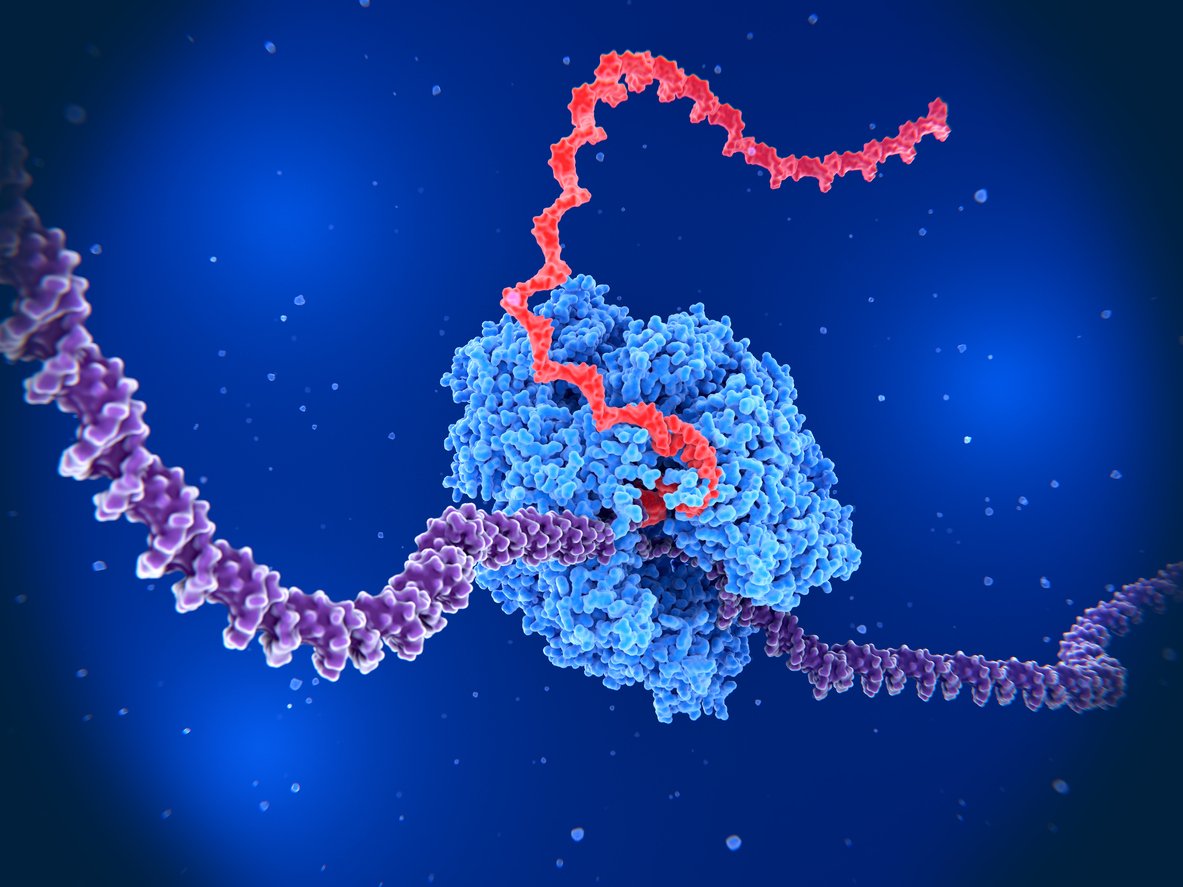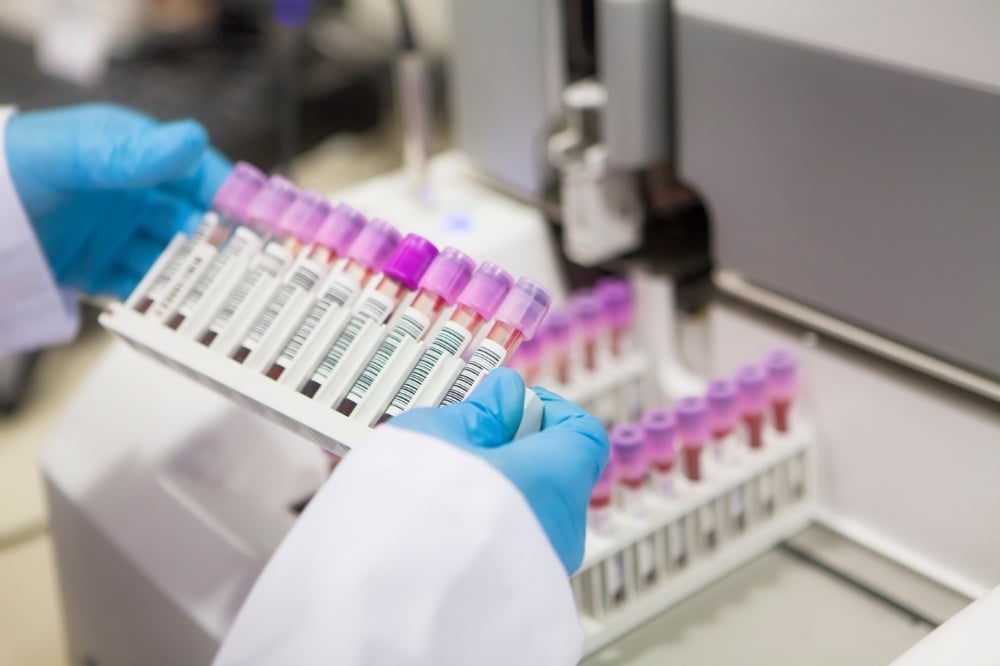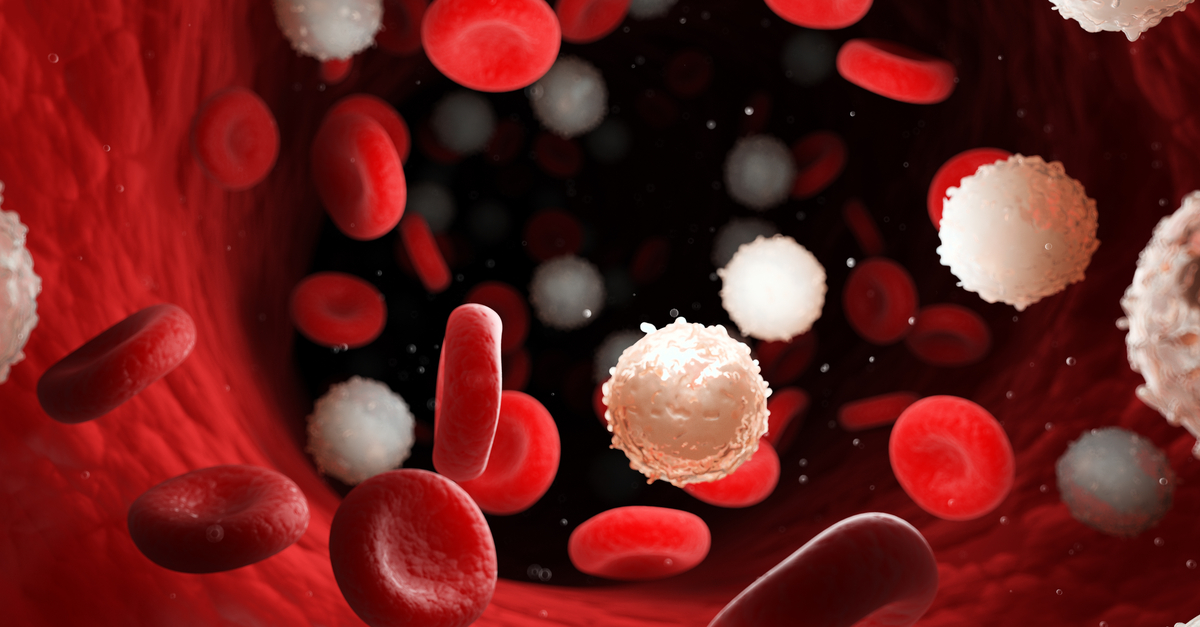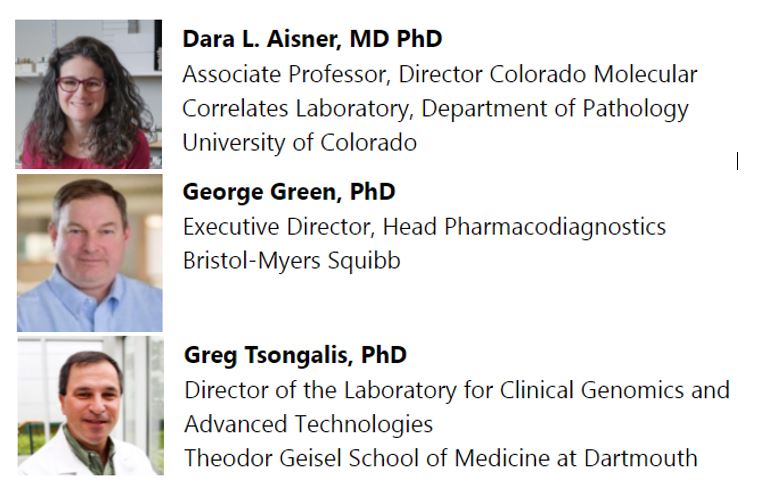Premium reference materials help take innovative genomic technology into the clinic Biofidelity is a pioneer in the genomic technology space, and the UK-based company’s mission is to unlock the benefits of precision medicine for cancer patients. Its revolutionary technologies can be used for early detection, precise diagnosis and routine monitoring applications in oncology.
Choose your Article Focus | NGS | Molecular & Serology
SeraCare Team
Recent Posts
Biofidelity Customer Case Study
Category: Customer Testimonial, BioFidelity
Posted by
Krystyna Nahlik, PhD on Mar 28, 2023 9:42:24 AM
0 Comments Click here to read/write comments
Lessons Learned: Pandemic Readiness & Reference Material Solutions
Category: COVID-19, SARS-CoV-2
Posted by
SeraCare Team on Feb 23, 2023 11:22:56 AM
In the early days of the COVID-19 pandemic, diagnostic testing was challenging. The tests were inaccurate, resulting in false results for both laboratory-developed and commercially-developed assays. This hampered efforts to identify cases quickly and contain the spread of the virus. The lack of reliable reference materials was a significant factor in these early diagnostic failures. Clinical testing labs were desperately searching for quality solutions that could help them independently verify that their assays were working properly. Learn how we successfully addressed these challenges:
0 Comments Click here to read/write comments
Molecular Diagnostics - Part 5: Analytical Sensitivity and Analytical Specificity Best Practices
Category: Molecular & Serology, Blog
Posted by
SeraCare Team on Feb 6, 2023 11:30:00 AM
The final article in our series about molecular diagnostics looks at best practices for analytical sensitivity and analytical specificity. Both are additional characteristics for laboratory-developed tests and modified FDA-cleared or approved tests.
0 Comments Click here to read/write comments
Insights on the Methylated DNA Webinar - Part 2
Category: ccfDNA, cfDNA, ctDNA, methylated, Methylated DNA
Posted by
Krystyna Nahlik, PhD on Jan 26, 2023 9:08:26 AM
DNA methylation is an epigenetic mechanism modulating the function and expression of genes. DNA methylation regulates gene expression by recruiting proteins involved in gene repression or by inhibiting the binding of transcription factor(s) to DNA. Changes in DNA methylation are associated with numerous diseases and abnormal DNA methylation has been implicated as one of the mechanisms driving tumor onset, development, progression and recurrence. Identification of tumor-associated methylation patterns is of great diagnostic potential, especially for early detection of disease. In Part 2 of this two-part blog series, the article continues to review the methylated DNA biomarkers in plasma webinar. As a reminder, Part 1 covered the main themes discussed by our invited webinar speakers - click here to read that article. To conclude the recent webinar hosted by LGC Clinical Diagnostics and GenomeWeb, Dr. Yves Konigshofer talked about levels of evidence required for clinical diagnostics, from analytical validity through clinical validity and clinical utility. Reference materials can help prove analytical validity and assess the impact of pre-analytical factors. Methylation reference materials that he is currently developing at LGC CDx address the analytical validity of 5’methylcytosine measurements in cfDNA.
0 Comments Click here to read/write comments
Insights on Methylated DNA Biomarkers Webinar - Part 1
Category: ctDNA, Methylated DNA
Posted by
Krystyna Nahlik, PhD on Jan 6, 2023 12:03:07 PM
DNA methylation is an epigenetic mechanism modulating the function and expression of genes. DNA methylation regulates gene expression by recruiting proteins involved in gene repression or by inhibiting the binding of transcription factor(s) to DNA. Changes in DNA methylation are associated with numerous diseases and abnormal DNA methylation has been implicated as one of the mechanisms driving tumor onset, development, progression and recurrence. Identification of tumor-associated methylation patterns is of great diagnostic potential, especially for early detection of disease. Recently LGC Clinical Diagnostics had the pleasure to host a webinar, bringing together a panel of academic, clinical, and industry experts in the field of methylated DNA testing, who discussed the promises and challenges of early cancer screening and recent technological advances. It was a great opportunity to hear from the pioneer of prenatal cfDNA testing, Dennis Lo, MD, PhD, and an expert in computational cancer genomics analysis, Jimmy Lin, MD, PhD, MHS, as well as Yves Konigshofer, PhD, the head of technology development at LGC Clinical Diagnostics.
0 Comments Click here to read/write comments
Molecular Diagnostics - Part 4: Reportable Range and Reference Interval Best Practices
Category: Molecular & Serology, Blog
Posted by
SeraCare Team on Dec 21, 2022 11:30:00 AM
Our series on molecular diagnostics continues with a look at best practices for two performance characteristics – reportable range and reference interval. These two characteristics need to be verified and documented for FDA-cleared or FDA-approved tests, laboratory-developed tests, and modified FDA-cleared or approved tests.
0 Comments Click here to read/write comments
Molecular Diagnostics - Part 3: Accuracy and Precision
Category: Molecular & Serology, Blog
Posted by
SeraCare Team on Oct 25, 2022 9:45:00 AM
We continue our series on molecular diagnostics. Previous articles covered: what you need to verify your molecular assay and the three major components of the verification process. FDA-cleared or FDA-approved tests have four performance characteristics that must be verified and documented: accuracy, precision, reportable range, and reference interval. Laboratory-developed tests and modified FDA-cleared or approved tests have two additional characteristics for verification (analytical sensitivity and analytical specificity). Now, it’s time to turn our attention to best practices for each of the performance characteristics. First up – accuracy and precision.
0 Comments Click here to read/write comments
Molecular Diagnostics - Part 2: Tackling the How
Category: Molecular & Serology, Blog
Posted by
SeraCare Team on Aug 30, 2022 11:48:55 AM
3 Important Stages of Assay Verification Molecular diagnostic tests are widely available in clinical microbiology laboratories now. It’s important to a lab’s success to understand the requirements before adding a new test. Protocols aren’t specified by regulators, so they vary by lab. The assay influences the controls and parameters, but the type of verification and its complexity are determined by lab directors. In a recent article, we took a look at what to verify. This is the first of several articles that will cover how to confirm a molecular assay performs as expected.
0 Comments Click here to read/write comments
Development of a Novel Reference Material for MRD Monitoring Assays
Category: MRD, ccfDNA, cfDNA, Minimal Residual Disease, NGS, ctDNA, reference materials
Posted by
Yves Konigshofer, PhD on Aug 17, 2021 12:00:00 AM
Authors: Yves Konigshofer, PhD; Andrew Anfora, PhD; Omo Clement, PhD; and Krystyna Nahlik, PhD. LGC Clinical Diagnostics. Introduction Liquid biopsy methods developed for circulating tumor DNA (ctDNA) analysis in solid tumors are transforming clinical practice, allowing for non-invasive detection and assessment of earlier stages of disease, monitoring for resistance to therapy, and post-treatment monitoring for minimal residual disease (MRD) and recurrence of cancer. The presence of minimal residual disease may be prognostic in that is has been found to correlate with worse patient outcomes, so early and accurate measurement is crucial. ctDNA-based assays allow for the detection of MRD at earlier time points than standard clinical and imaging surveillance, and could allow for treatment modification based on real-time assessment of the tumor genomic landscape.
0 Comments Click here to read/write comments
Webinar on Genomic Testing to Support New Therapies for Advanced Cancer — Insights and Takeaways
Category: ccfDNA, cfDNA, NGS, Genomic Testing, ctDNA, reference materials
Posted by
Russell Garlick, PhD on Aug 11, 2021 12:00:00 AM
This is Part 1 of a 2-part blog reviewing the Genomic Testing webinar and panel discussion featuring Dara Aisner, MD PhD, George Green, PhD and Greg Tsongalis, PhD. With so much rich information, we will be posting two blogs. Part 1 will cover select important themes discussed by each speaker, and Part 2 will review the audience Q&A. Recently, I had the pleasure of participating in a webinar co-sponsored by LGC SeraCare and GenomeWeb. The topic was “Genomic Testing to Support New Therapies for Advanced Cancer”.
0 Comments Click here to read/write comments












/ebook%20CTA%20image%20square%20Jan2019.jpg?width=277&name=ebook%20CTA%20image%20square%20Jan2019.jpg)
